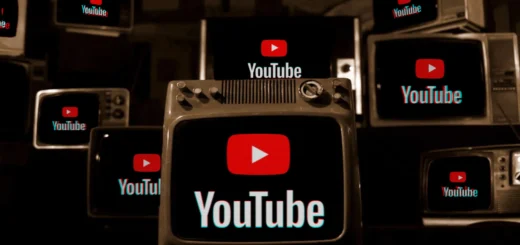5 Things To Know Before Starting A Business!! The Beginner’s Guide
Starting a business is a multi-step process. Creating a product is the first step, but growing a business is a whole different thing, and that is when one needs to learn the prerequisites of a business because we know, “Well begun is half success.” If the same mindset has taken over you, you are at the right place, as we will discuss 5 things to know before starting a business.
The present time is solely evidence of entrepreneurship. The last 2 to 3 years were business years, and the coming time is the business era so to speak. Even the figure constantly fluctuates, but according to internet reports, more than 4 million people globally step into business and entrepreneurship.
Whether you are thinking of a small or big business, the key points below will help you have a good start.
5 Things To Know Before Starting A Business

Research and Find A Problem
Research is the root of all innovation. In business, what you need to research is the problem. What problem can you solve? A genuine problem in society is a chance to innovate a solution as a business. Once that’s done, use Google Uncle to understand your audience: the people who need this solution. This will give you a vivid picture of a market and the service you want to sell.
Make it clear by taking an example of Amazon’s most successful businesses of all time. Amazon started with bookselling but turned into a full-fledged market because Jeff Bezos could pinpoint a gap that people need almost everything in one place, and we know how much relieved we are to find a little pen and a huge sofa both in the same place.
So, look out for a gap in the existing market. You will find either the services are too expensive or too low. Try to fit yourself between the both.
Set the Budget

Not boasting, but numbers come before any other step in a business. The budget is a key factor in any business model, but the ability to divide it adequately is a game-changer. Figure out how big is the problem and how adequately your service will cover it. It is better to divide the budget before it jeopardizes your business goals. Many small businesses fail only because they cannot plan their finances wisely.
Registering your company, obtaining necessary licenses and permits, and understanding your tax requirements are major things that must be considered in your initial budget. To do business in certain states, you also need compliance with the state-specific labor laws and tax codes, just ike you have to go through many legal complications for doing a payroll in California.
A few things you can undertake are analyzing the cost of production, comparing market prices of similar services, negotiating with suppliers, and last but not least, looking up to a financial advisor. It can take your burden off while providing you with the best budget plan.
Outsourcing
It is okay to not underestimate your capabilities but it is not okay to overestimate them either. Business is a blend of many things. You can approach two or four things by yourself, but what about the remaining? This is where the concept of outsourcing comes in. Outsource what you think will require a lot of your energy unnecessarily.
What established business owners suggest outsourcing are accounts management, e-mail marketing, customer service, and packaging. Outsourcing a few things cuts on time and allows new business owners to focus on what’s left. I mean, why would you sit and write the same mail to 100 people again and again? Think.
Think In The Long Term
According to a report, 20% of businesses fail during their first two years and 45% fail in their fifth year. The only solution to curb this damage is long-term thinking. In a business mindset, 10, 20, or 30 years are not long. New business owners look out for services that are either evergrowing or have scope for an exceptionally good time.
Long-term strategies are inclined towards the well-being of society rather than a business’s mere profit. There have been examples of successful businesses that put the long-term plan to work, suffering a significant loss but eventually getting the most results in the end.
One such epitome is CVS Health- A food and drug company whose CEO banned cigarettes in 2014 to focus solely on his mission: to provide people with better health. However, this move attributed to a loss of 7% in stock price, $70 billion in revenue but CEO Larry Merlo had already bought buy-ins from the board. According to the company website, a 36% decline has been observed in youth smoking since this initiative. With this risky but long-term thinking, the company got offers from big firms to sell their products.
5. Marketing and Networking

Don’t you think business is 80% about marketing only? Even the most successful businesses market and keep on doing it always. A business can only reach its full potential by marketing.
Utilize social media in all its glory. Market your service or product on social media. Be it Instagram or Twitter or the most underrated platform like Reddit, leave no room where humankind is active. Branding is a very crucial step here.
It includes selecting a unique appearance for your brand because there are already hundreds of similar services, and how to stand out should be your thought. Another marketing strategy is affiliate marketing. Let influencers advertise your product. After all, this is what they are best at: Convincing.
Content marketing via blog posts, podcasts, emails, and videos significantly boosts brand visibility. In the networking context, connect to people in similar fields, like a group of business owners or concentrated consumers. This gives exposure to creativity, ideas, and market trends.
Conclusion
The business field is ever-growing, and it comes with no bondage to creativity, expansion, or success. The more you invest, the more it yields out, but only when a meaningful and mindful approach is taken. With this, we hope you are satisfied to learn about basic but crucial things to know before starting a business.


